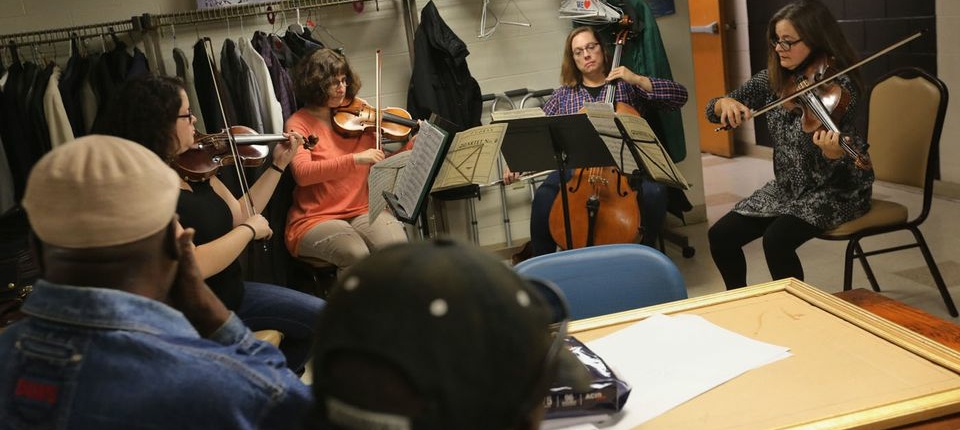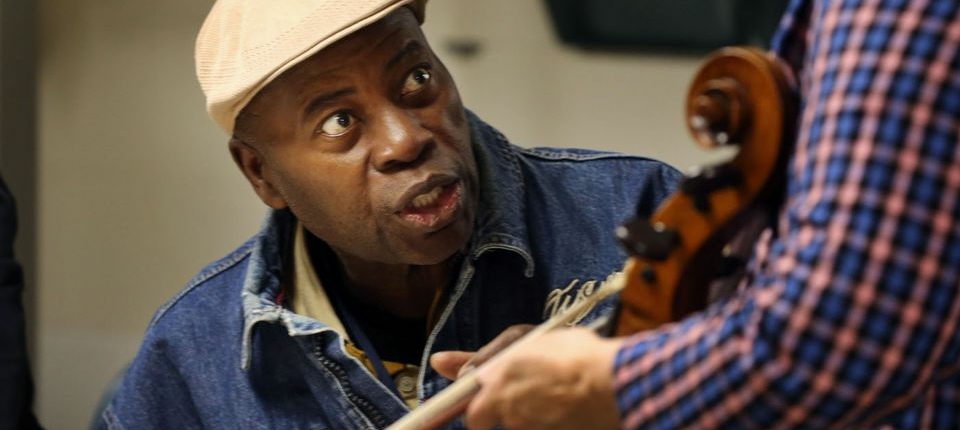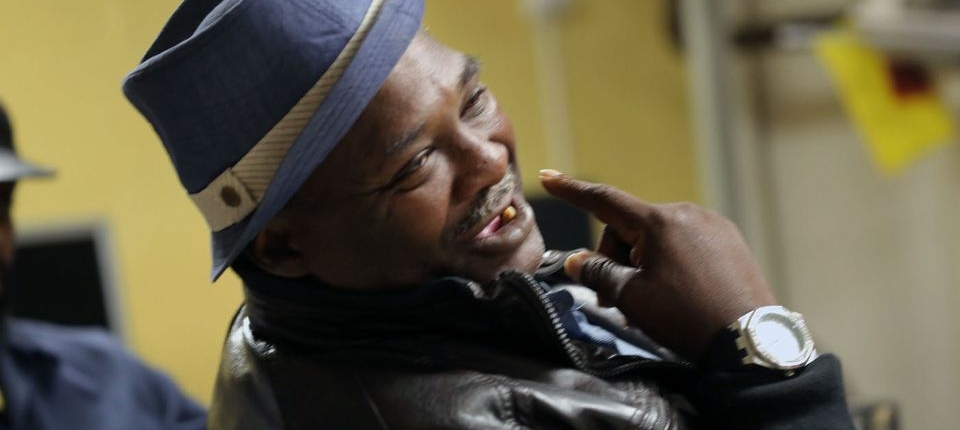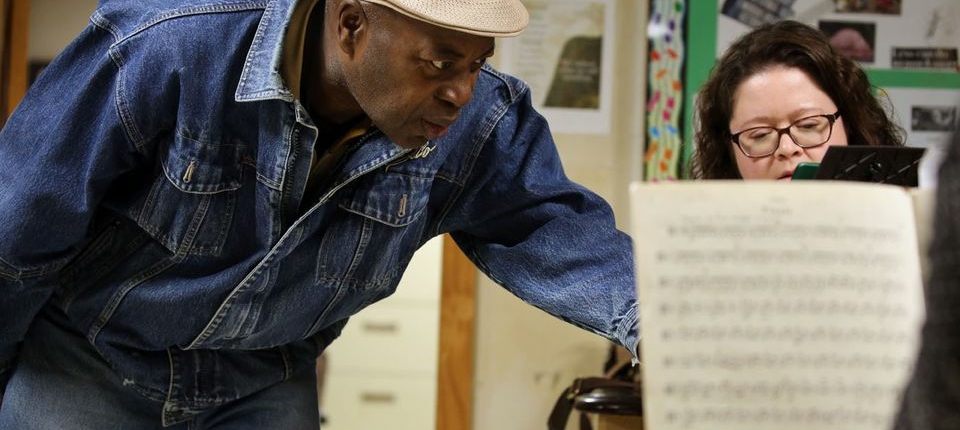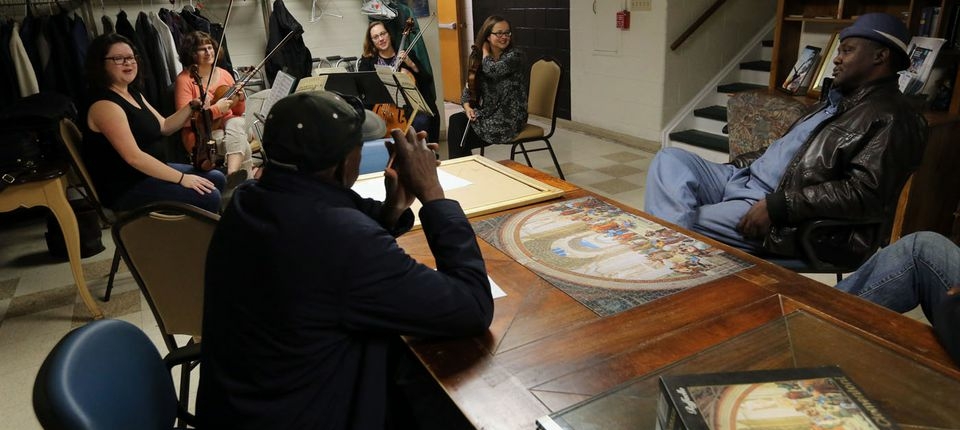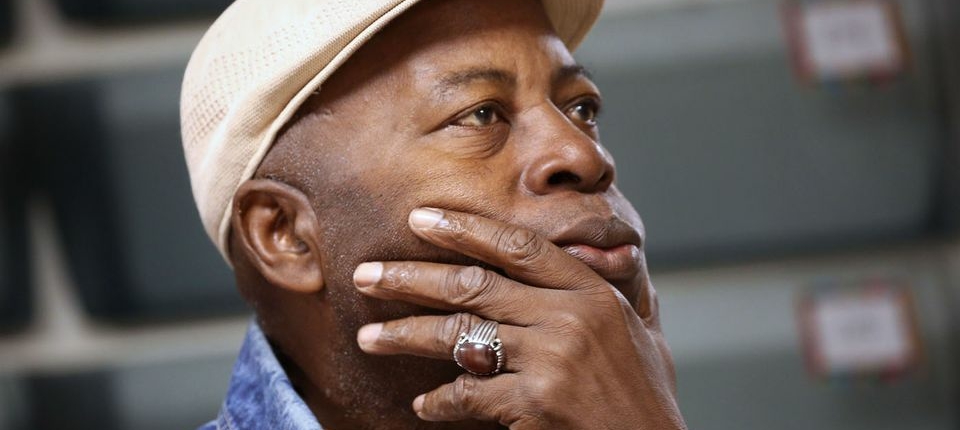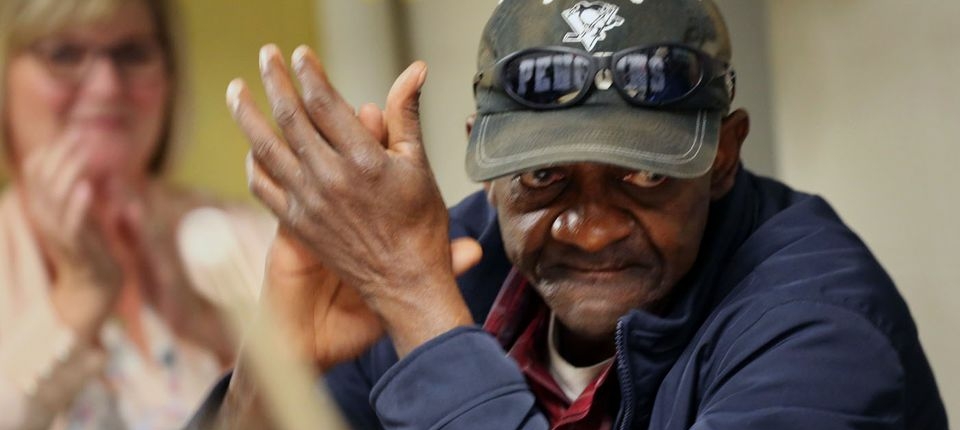The Plain Dealer: New Access Music group reframes musical outreach as two-way exchange
CLEVELAND, Ohio – Access Music may be a form of cultural outreach, but it’s a form unlike any other in Northeast Ohio.
Motivated less by musical discipleship than simple humanitarian goodwill, the artists of Access Music don’t just put on concerts. They take their art to those who need it and use it to establish personal connections.
They don’t play theaters, in other words, or even on stages. They play and speak in homeless shelters, prisons, and halfway houses, any place where residents could use a little uplift, a few minutes of feeling welcome and valued.
“Healing through the communal power of music,” said Access Music co-founder Chester Englander. “It’s truly no more complex than that.
“The music is enough. It’s all about that willingness to bring music to people. Just because you’re in one of these places doesn’t mean you’re unworthy of human interaction.”
Englander, a lecturer in percussion at Cleveland State University, doesn’t take credit for the idea behind Access Music. He and his wife, Rachel, a freelance violinist, did all the work of founding and launching the organization last summer, but the concept on which it’s based hails from violinist Vijay Gupta.
Gupta’s “Street Symphony” and other musical outlets for the homeless in Los Angeles, where the Englanders lived before moving to Cleveland, inspired the couple to fashion a similar group in Cleveland, where they saw a need for such work every bit as great. A recent speech by Gupta at Cleveland State University, during which he advocated a “two-way exchange” in musical outreach, only added fuel to their fire.
“It dawned on me one day how perfect this kind of project could be here in Cleveland,” Englander said. “For us, it’s not just another gig. When we present music in these settings, we’re on an equal footing. All of a sudden, there’s a community feeling that connects social groups that otherwise would have no contact.”
One of the first venues to recognize the value of Access Music was Joseph’s Home, a transitional facility near Cuyahoga Community College providing housing as well as healthcare, education, and skills training to homeless men with temporary or chronic illnesses. Already, the home has hosted Access Music three times, each time to a small but lively audience.
On one visit, Rachel Englander and cellist Julie Myers King regaled a dining room full of guests with Bach as well as stories about what the music means to them personally. One resident, during Bach’s “Sheep May Safely Graze,” called out “I know this one!,” while others asked thoughtful questions about reading music and playing solos.
A few weeks later, back at Joseph’s Home, Englander and three other friends treated a different set of residents to string quartets by Dvorak. They spoke of the Czech composer’s work in the United States and wondered with their listeners about how his experiences here may have influenced the music they were playing.
This time, the response was downright heartwarming. One resident closed his eyes and began conducting and nodding his head in time with the music. Another described what he’d just heard as “a place of healing and relaxing…soothing to the soul,” and predicted that the visit by Access Music would be “the high point of my day, and possibly the high point of my week.”
“We’re just being people, together, and using music to bridge these societal gaps,” Rachel Englander said later. “They’re feeling something, and we’re feeling something. It’s something we have in common.”
That’s as good as it gets for Access Music. Unlike most others engaged in musical outreach, here or anywhere, Englander and friends aren’t out to make converts. While they’d love to see their patrons at concerts around town, that isn’t really their goal.
All they want to do is share, in a new way. Professionals used to playing concerts in formal settings with deeply entrenched customs governing dress and behavior, they too derive pleasure from the relaxed, natural encounters Access Music fosters.
Gupta’s line about a two-way exchange? To them, it’s the gospel truth.
“We’re usually working,” said violinist Leah Burtnett. “This is a great excuse for us to get together and just enjoy each other and share some music. It’s the best type of playing that we do.”
Written by Zachary Lewis, The Plain Dealer

